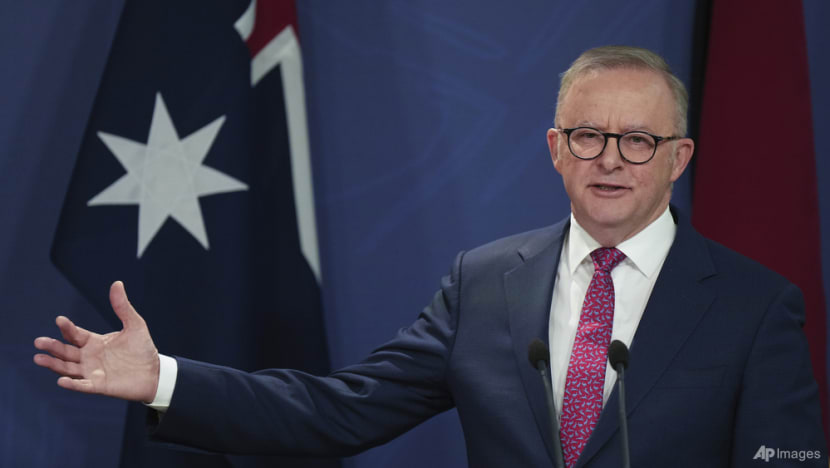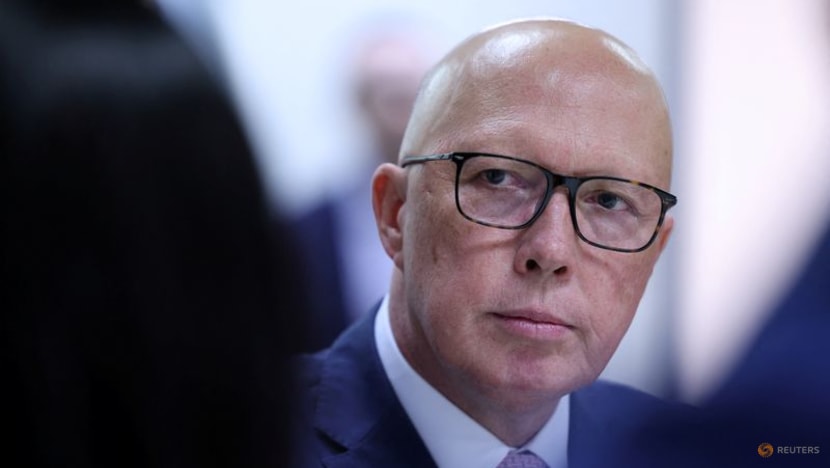Australia PM Albanese calls national election for May 3

Australian Prime Minister Anthony Albanese during a press conference in Sydney, Dec 12, 2024. (File photo: AP/Mark Baker)
SYDNEY: Australia's Prime Minister Anthony Albanese on Friday (Mar 28) called a national election for May 3, launching a five-week campaign that is set to be dominated by cost-of-living pressures.
Albanese's Labor party won a majority at the last federal election in 2022, but most recent opinion polls show the party neck-and-neck with the opposition Liberal-National coalition when votes from smaller parties are redistributed.
"Our government has chosen to face global challenges the Australian way – helping people under cost-of-living pressure, while building for the future," he told a press conference.
"Because of the strength and resilience that our people have shown, Australia is turning the corner. Now on May 3, you choose the way forward."
Albanese earlier in the morning met the country's governor-general Sam Mostyn to seek permission to call a nationwide federal election.
Under Australia's constitution, the prime minister must formally seek permission to call an election from the governor-general, who represents the head of state, Britain's King Charles.
Three-year term limits mean Australia must go to the polls by May 17 at the latest to elect a new parliament.
TIGHT CAMPAIGN
Albanese has announced a slew of measures aimed at pleasing families and businesses in recent months, including tax cuts in Tuesday's budget, with the rising cost of living in the country set to dominate the campaign.
A close-run election could mean no single party or coalition of parties will be able to form a government on its own, instead relying on smaller parties to command a majority in the country's lower house.
Albanese, a long-time Labor lawmaker who grew up in government housing, came to power on a wave of personal popularity but has suffered from the rising cost of living and a steep rise in interest rates during his tenure.
Falling inflation and the decision by Australia's central bank to cut interest rates for the first time in five years at its February meeting have done little to help Albanese's polling numbers.
After enjoying a healthy lead for much of his term, his approval ratings are now close to those of Liberal leader Peter Dutton, a former police officer and the interior minister in the last Liberal-National government.
Dutton has campaigned on law-and-order and a plan to adopt nuclear power in the country, in opposition to Labor's transition to renewable energy.
Both leaders have promised an extra A$8.5 billion ($5.42 billion) over four years to shore up the country's public healthcare system.

Recounting how his invalid pensioner mother was treated in the same public hospital as an Australian billionaire, Albanese on Friday revised a scare campaign that dominated the 2016 election, suggesting the Liberal and National coalition would cut the national healthcare scheme Medicare.
Dutton has said he will match Labor's plan to boost Medicare funding for doctors' visits.
Another issue in the campaign will be which leader would best handle relations with US President Donald Trump, who imposed steel and aluminium tariffs that affect Australian exports. Trump is expected to announce a further round of tariffs on trade partners next week.
Albanese said his government had been "engaging on a daily basis" with the Trump administration over tariffs, and pointed to his two phone calls with the US president and early meetings between the two countries' defence and foreign ministers.
Without naming Trump, Albanese sought to cast Dutton as adopting Trump-like policies, such as cutting public servant jobs.
"There are a range of ideas borrowed from others - we need the Australian way," Albanese said in his press conference.
Zareh Ghazarian, senior politics and international relations lecturer at Monash University, said it does not appear that support for the coalition - led by Dutton - is going to be enough to allow them to win a majority government.
However, he noted that Labor holds only 77 of the 151 seats in the House of Representatives, giving it a "very thin majority".
"This time, thanks to redistributions and changes in population, the number of seats is 150. So a party must win at least 76 seats to win a government in their own right," he told CNA's Asia First.
"It looks as though Labor's going to probably lose some seats, the coalition's probably going to win some seats, but it's hard to see who's going to end up with that magic number of at least 76."
On voters' concerns over cost of living pressures, Ghazarian said the social and economic impact of the COVID-19 pandemic "is still with us" in the form of cost increases from food to energy.
"The price of goods and services as well as energy, in addition to housing availability and affordability, are going to be really prominent issues over this five week campaign," he added.













